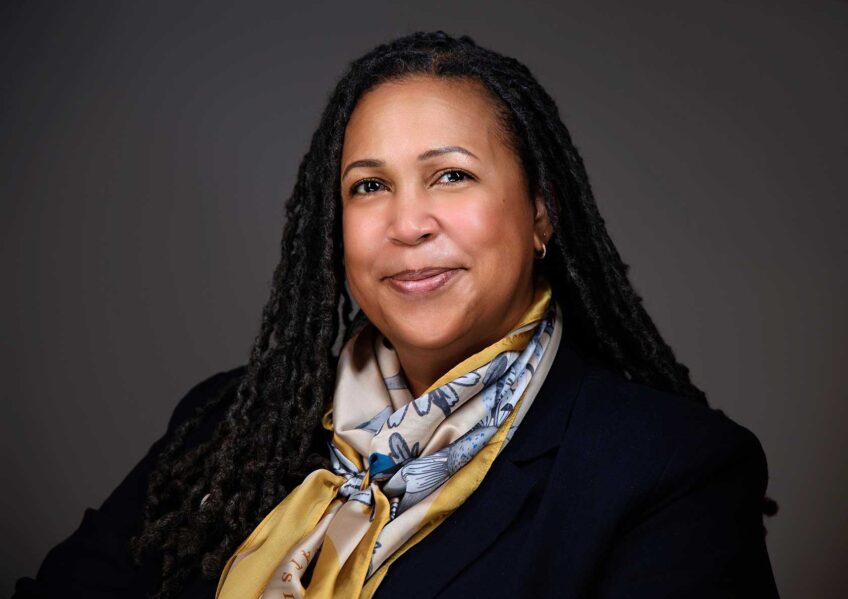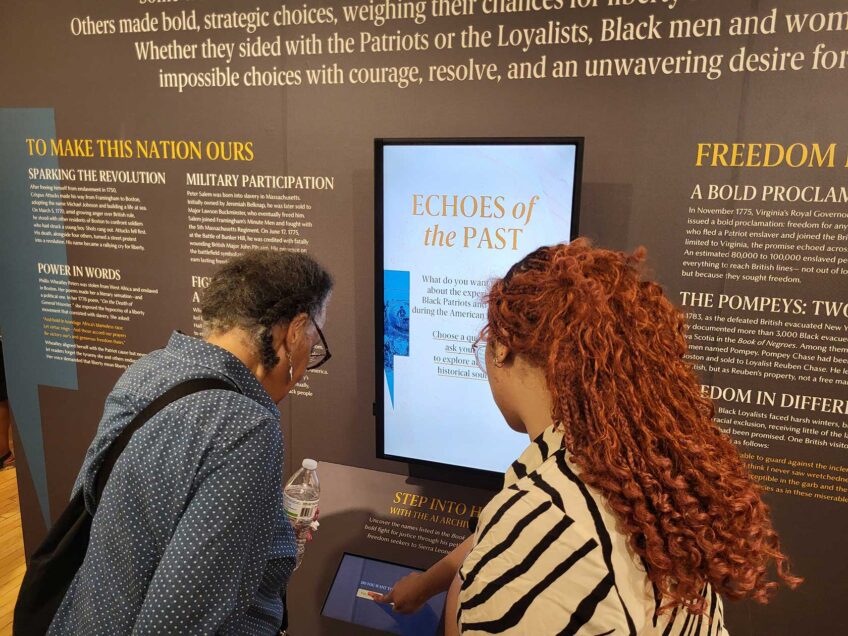AMHERST, Mass. — Biology student Jason Vassell was in his ground-floor University of Massachusetts dorm room hanging out with friends when two drunken strangers tapped on his window, asking for directions. An argument began.
One of the white men hurled racial slurs at the 24-year-old Vassell, who is black and the son of Jamaican immigrants, before both took off.
Vassell then put a black cloth over his face, armed himself with a clothes iron and a folding knife and left his room. Surveillance cameras later show Vassell stabbing both men in the dorm lobby.
A year later, Vassell awaits trial on two counts of aggravated assault and battery with a dangerous weapon in a case that has galvanized the school community. Hundreds of professors, students and community members continue to rally behind the former student, believing he was the victim of a hate crime and that the two men who set off the chain of events were not held fully accountable.
“When it’s someone you know, when you see their life being ruined, it isn’t easy to forget it,” said sociology professor Dan Clawson, one of Vassell’s supporters.
Prosecutors acknowledge that John Bowes and Jonathan Bosse, on campus to visit friends, were drunk early on the morning of Feb. 3, 2008, and that Bowes shouted racial slurs. Bowes was convicted in early March of misdemeanor disorderly conduct but acquitted of a civil rights violation and given a year of probation. Bosse was not charged.
But prosecutors say Vassell could have defused the situation multiple times in the more than 10 minutes between when he first entered the lobby and when he stabbed the two men.
During the fight in the lobby, prosecutors said Bowes punched Vassell in the upper body to disarm him, then Vassell stabbed him three times. When Bosse tried to help his friend, he was stabbed four times. Both required emergency surgery.
In court, Assistant District Attorney Elizabeth Dunphy Farris said surveillance camera footage showed Vassell was the aggressor.
“The privilege to use self-defense arises only in circumstances in which the defendant uses all proper means to avoid physical combat,” prosecutors said in a court filing.
Vassell’s attorney, David Hoose, does not deny that the student stabbed the men.
But in a motion to dismiss the charges, Hoose argued that prosecutors ultimately made the decision to charge Vassell because he is black and the two men he stabbed are white.
Hoose said police were hostile toward Vassell from the beginning of the investigation. The attorney claims a police lieutenant said the incident involved a drug deal and Vassell was dealing drugs, even after other officers said the evidence showed no such thing. The motion also describes the same lieutenant as calling Vassell a “donkey.”
The lieutenant has denied his comments were based on Vassell’s race. Dunphy Farris has said they were taken out of context.
Hoose said Bowes and Bosse had a history of fighting and getting into trouble, which he argues prosecutors chose to ignore. Bowes did not return messages left at his home; there was no listing for Bosse.
Hampshire Superior Court Judge Judd Carhart ruled in February that prosecutors must provide the defense five years of data on racial violence and hate crimes in the county. Prosecutors are appealing the order.
“You can’t look at it as if this didn’t begin with overtly racist slurs,” Hoose said.
Instead of graduating in December 2008 as expected, Vassell left school early and now lives two hours away in Boston, where he works for his father’s electrical company, said his sister, Tiffany Vassell. Each charge carries a maximum sentence of up to 15 years in prison. If convicted, however, Vassell would likely face a much lighter sentence because he has no criminal record.
He declined interview requests through his lawyer and sister.
Justice for Jason, the group that has taken up his cause, recently raised $6,000 for his legal fees. About 100 supporters also demonstrated on his behalf on the anniversary of the incident.
“There had been a hate crime, and the university didn’t address it,” said Jasmin Torrejon, a 21-year-old student and organizer for Justice for Jason. “It’s really the community’s passion to see this cause end.”
The university has declined to comment on the case.
Professors and students have pushed for Vassell to return to UMass, but his sister said he has no interest in coming back.
Her brother feels the university was “the one place where you should have been safe and someone should have seen the side of your story, and they didn’t,” she said.
(Associated Press)






